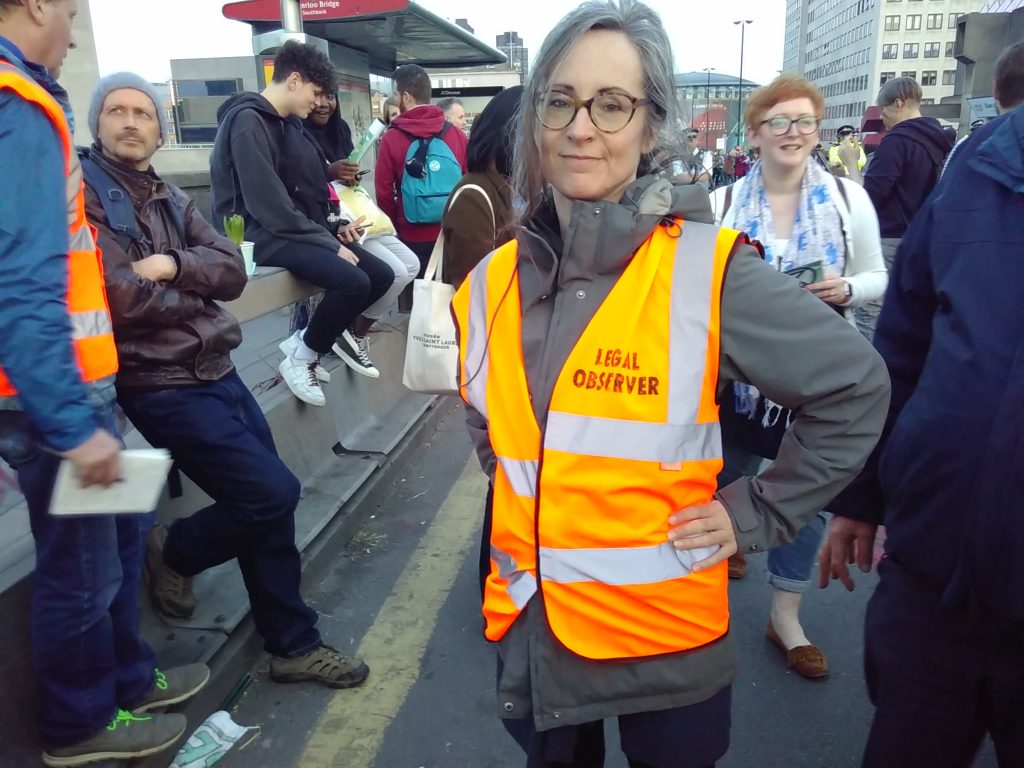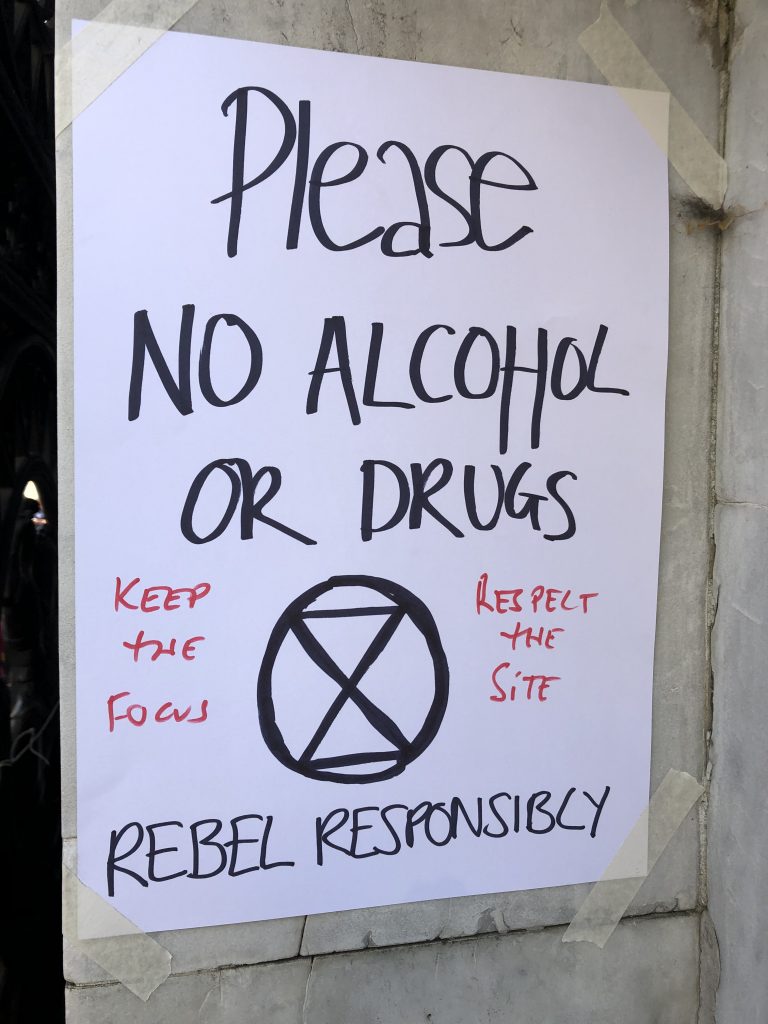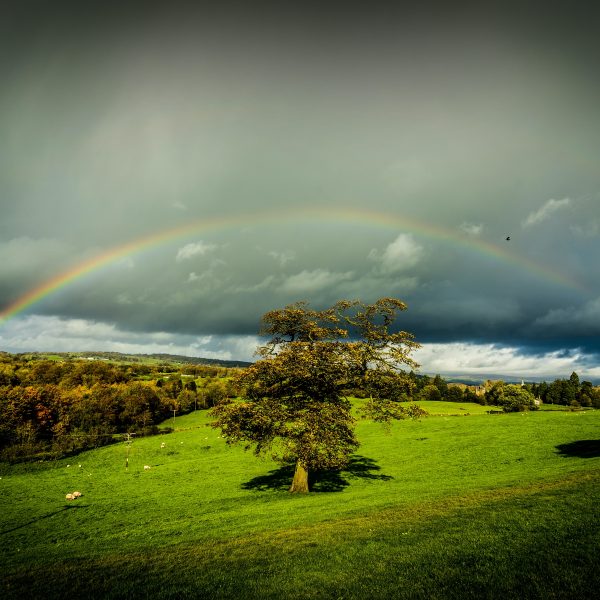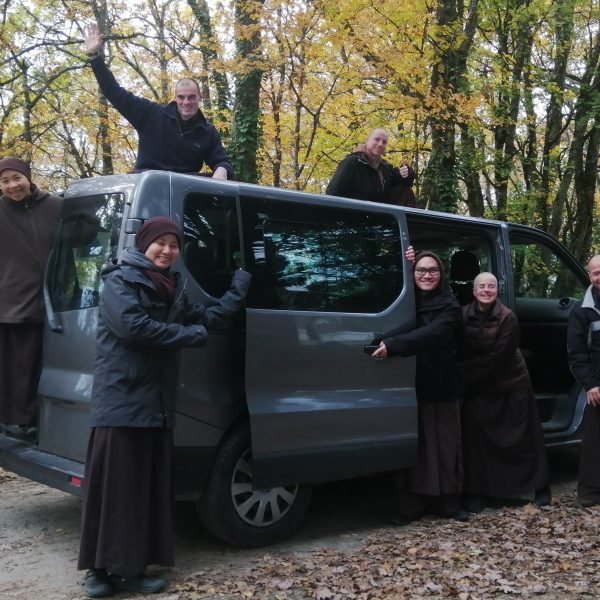Mindful action on the climate crisis

We spoke to Kirsten Downer, a member of the Heart of London Sangha about her involvement in recent environmental protests.
Can you tell us a little about Extinction Rebellion and why you have been involved?
Extinction Rebellion is an international non-violent civil disobedience movement aiming to get policies and action in accordance with science, which warns us that if we don’t get to zero carbon asap and draw down pre-existing carbon from the environment, we’ll be heading for huge amounts of warming – to the point that billions of people could die by 2050.
It came about as warnings from science became increasingly more urgent, and after a lost decade where barely any meaningful action took place. Thanks to heavy lobbying from fossil fuel companies leaning on a cowed, undemocratic media, environmentalists and scientists spent much of the previous decade defending themselves and their careers, forced into unnecessary debates as to whether climate change was even real.
I have always been interested in Buddhism and meditation. But whereas many Buddhist traditions in the UK say very little about what happens ‘off the cushion’ – I found the PV ‘engaged Buddhism’ tradition a lot more active and rallying. I still remember first hearing the five mindfulness practices; no other tradition I’d meditated with had emphasised a global ethic in this way. Not only that but the second mindfulness training ‘True Happiness’ mentioned global warming/climate change specifically and warned against excessive consumption.
The Five Mindfulness Trainings felt like a flag to rally behind, or a path to follow. And I could see that it was a path that would reconcile my Buddhist practice with my activities in the outside world, and strengthen both my meditation practice and my efforts for social and environmental justice.
The Plum Village practice leads naturally to the Extinction Rebellion movement which provides a constructive, peaceful way we can act on the Mindfulness training – ‘reverence for life’. This reverence is shared by all spiritual traditions and goes to the heart of what it means to be human. No wonder then that so many spiritual groups are involved in Extinction Rebellion, and the former archbishop of Canterbury has spoken out in support. We’re literally trying to stop billions of humans, and other living beings, from suffering and dying on this planet.

How have you been involved with Extinction Rebellion?
When I first heard about Extinction Rebellion in autumn of last year, it was with huge relief. Finally, here was a movement that was stepping up the pressure, and yet in a non-violent way. All the emails, petitions, polite marches of the past 10 years had failed to get politicians and media to reflect the emergency of our situation. Perhaps this would. It looked promising – thousands attended the first action which was only called at short notice, and already many previously law-abiding people had signed up to break the law peacefully. I could see the movement was founded on social science about how social movements create change – it had credibility and logic, as well as morality and deep compassion behind it.
I went along to the action in November, along with some other PV friends, where five bridges across the Thames were blockaded peacefully. I saw how big the movement had already become and also how suddenly the media started to talk about the threat of climate breakdown. I filmed the action and shared it on social media, and then went to support arrestees at the police station – how great was this movement, that it made sure people turned up at police stations with food, love and support for those brave enough to get themselves arrested?
I chose to do legal observing this April as a way to help the movement while minimising my chances of getting arrested. It’s such a crucial role, acting as a deterrent against police mistreatment and a way to support participants in knowing their rights. Legal observers do not get involved in any civil disobedience action. They are independent and as far as possible, impartial when they are on duty. That means no badges, chanting or getting involved with Extinction Rebellion while they are on their shift – and that this independence is really important to protect this role and make it work.

What have some of the challenges been?
The main challenge has been fitting it around my full time job. When lots of arrests are happening, it can be a very intense experience, with lots of adrenaline pumping around your body. You stay calm and focused but I found it hard to go to bed and off to sleep afterwards. The other challenge I’ve found is on leaving the occupied sites such as Marble Arch and Waterloo Bridge. These camps have been incredibly beautiful places full of creativity and human ingenuity, full of a joyful sense of deep community – it’s a taste of what society could be, so very easily. It’s the very embodiment of interbeing. And then you have to go back to so-called ‘business as usual’ where everyone is encouraged to think of themselves as separate competing individuals – it feels so empty.
Which Plum Village practices have you found most beneficial while being involved?
Peaceful activism is an anti-depressant; it embodies love and interbeing. We see that all is one and one is all. We are ourselves, but at the same time we are all each other. Where I’ve needed Plum Village practices is helping me acknowledge and love the empty feelings which can come after the actions, or when you talk to people who haven’t been involved. The principle of sowing seeds, that every skilful action will have a result (even if you don’t see it in your lifetime) is incredibly helpful to avoid overwhelm or burn out. You just do your bit, in the full knowledge that you are one of millions of other loving beings doing so, and let go of the outcome to some extent. This philosophy really helped me reassure a despairing passerby I talked to off-duty at an action. It made me realise how many people carry despair inside them – and how the wisdom of interbeing, skilful action and surrender is the antidote.
How are you feeling about continuing this engaged practice going forward?
I will definitely be continuing this engaged practice, supported by regular meditation in the Sangha. I would like to offer the practice to my local affinity group too, and would love to get more involved with Wake Up London in any future peaceful actions. I’m feeling the need to reflect on the week with my sangha. And I’ll be working hard to push for a Green New Deal within my chosen political party – a key way we can help avert climate breakdown.

The essence of nonviolence is love. Out of love and the willingness to act selflessly, strategies, tactics, and techniques for a nonviolent struggle arise naturally… Other struggles may be fuelled by greed, hatred, fear or ignorance, but a nonviolent one cannot use such blind sources of energy, for they will destroy those involved and also the struggle itself. Nonviolent action, born of the awareness of suffering and nurtured by love, is the most effective way to confront adversity.
Thich Nhat Hanh

Would you like to share about your experience of applying the Plum Village teachings? Email hello@plumvillage.uk





